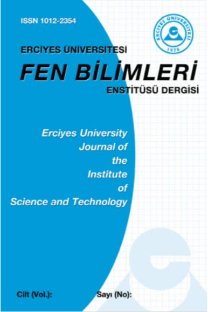Mikroalg metil esterinin bir dizel motorunda, motor performansı ve egzoz emisyonlarına etkisinin araştırılması
Geleneksel yakıtların kullanımından kaynaklanan hava kirliliği ve sera gazı etkisinin çoğalması gibi nedenlerin yanında petrol fiyatlarının yükselmesi, enerji maliyetlerininde önemli ölçüde artmasına neden olmaktadır.Bu ve benzeri sebeplerden kaynaklı olarak yakıt alternatifleri üzerindeki çalışmalar yeni ve yenilenebilir yakıt olarak biyodizel üzerinde yoğunlaşmıştır.Ancak Biyodizel, hammaddesinin Tarım arazilerinde gıda üretimi için ayrılan arazilerin bir kısmının daha çok kar elde edileceği düşünülerek yağ bitkisi tarımına ayrılması ile az gelişmiş ülkelerde gıda fiyatlarında artış ve gıda temininde zorluk yaşanmasına sebep olmuştur. Bundan kaynaklı olarak tarımsal amaçlı kullanılmayan alanlarda rahatlıkla yetişebilen üstelik hektar başına verimi diğer biyodizel kaynaklarına kıyasla çok yüksek olan mikroalgler yeni biyodizel kaynağı olarak görülmeye başlamıştır. Bu çalışmadada mikroalglerden tranesterifikasyon yöntemi ile biyodizel üretilmiş elde edilen mikroalg biyodizeli, dizel yakıtıyla belirli oranlarda karıştırılarak tek silindirli bir dizel test motorunda denenmiştir.
Anahtar Kelimeler:
Mikroalgler, Biyodizel, Hava kirliliği
The Effect of microalgae methyl ester on engine performance and exhaust emissions in a diesel engine
Air pollution caused by the use of conventional fuels, increasing effect of greenhouse gases, as well as the increase in oil prices result in significant boost in energy costs. As a result, studies on alternative fuels have concentrated on biodiesel as a new and renewable fuel. However, as the raw material of biodiesel is allocated to the cultivation of oil crop plants, considering that some of the lands assigned for food production would make more profit, it has caused an increase in food prices and troubles in food supply in less developed countries. Microalgae, which easily grow on fields that are not used for agricultural purposes and for which yield per hectare is very high compared to other biodiesel sources, are considered to be a new biodiesel source today. In the current study, microalgae biodiesel derived from microalgae through the transesterification method was mixed with diesel fuel in certain amounts and tested in a single-cylinder diesel test engine.
Keywords:
Microalgae, Biodiesel, Air pollution,
___
- Knothe G, Dunn RO, Bagby MO (1997) Biodiesel: the use of vegetable oils and their derivatives as alternative diesel fuels. In: Fuels and Chemicals from Biomass, 1st edn. American Chemical Society, New York
- Fukuda H, Kondo A, Noda H (2001) Biodiesel fuel production by transesteriŞcation of oils.J Biosci Bioeng 92(5):405–416
- USA Department of Energy (2004) Biodiesel: handling and uses guidelines. Energy EfŞciency and Renewable Energy
- Romano SD, González Suárez E, Laborde MA (2006) Biodiesel. In: Combustibles Alternativos, 2nd edn. Ediciones Cooperativas, Buenos Aires
- Freedman B, Pryde EH, Mounts TL (1984) Variables affecting the yields of fatty esters fromtransesteriŞed vegetable oils. J Am Oil Chem Soc 61(19):1638–1643
- Ladanai, S. and Vinterback, J. (2009). “Global Potential of Sustainable Biomass for Energy”. Uppsala: Swedish University of Agricultural Sciences. p32. doi:10.3390/en6020766
- Rinaldini, C., Mattarelli, E., Magri, M., and Beraldi, M., "Experimental Investigation on Biodiesel from Microalgae as Fuel for Diesel Engines," SAE Technical Paper 2014-01-1386, 2014, doi:10.4271/2014-01-1386
- Neel, C.; Johnson, D.; Wardlow, G. Performance, efficiency, and NOX emissions of a compact diesel tractor fueled with D2, B20, and B100 under steady-state loads. Appl. Eng. Agric. 2008, 24,717–721.
- Bradley D. Wahlen, Michael R. Morgan, Alex T. McCurdy, Robert M. Willis, Michael D. Morgan, Daniel J. Dye, Bruce Bugbee, Byard D. Wood and Lance C. Seefeldt, Biodiesel from Microalgae, Yeast, and Bacteria: Engine Performance and Exhaust Emissions Energy Fuels, 2013, 27 (1), pp 220–228
- ISSN: 1012-2354
- Yayın Aralığı: Yılda 3 Sayı
- Başlangıç: 1985
- Yayıncı: Erciyes Üniversitesi
Sayıdaki Diğer Makaleler
Yetersiz veri ortamında tahminler için örnek bir uygulama: gri tahmin yöntemi
Erkan KÖSE, Haka Soner APLAK, Mehmet KABAK
Özcan OTKUN, Adem Sefa AKPINAR
Petrov- Galerkin sonlu eleman yöntemi ile KdV-Burgers' denkleminin nümerik çözümü
Seydi Battal Gazi KARAKOÇ, Ali Rıza ABA
Düzce kenti yerleşim bölgelerindeki gürültü farklılıklarının incelenmesi
Mimarın eğitimi üzerine spekülatif bir deneme
Android kötücül yazılım tespit ve koruma sistemleri
Abdullah Talha KABAKUŞ, İbrahim Alper DOĞRU, Aydın ÇETİN
Kenan YAKUT, Abdüssamed KABAKUŞ, Faruk YEŞİLDAL, Altuğ KARABEY
Haluk GÖRGÜN, Mert SEVİL, Mustafa ERCAN
Olası taşkınların altyapı tesislerine etkileri: Harşit Çayı-Gümüşhane
